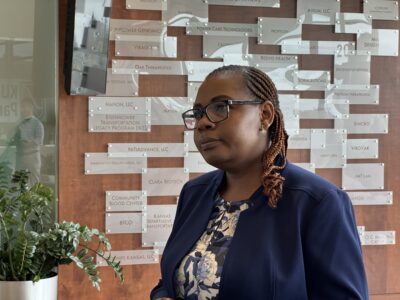University towns could see higher taxes
Deferred maintenance
- HouseBill 2593 (.pdf)
- Regentsreport says repairs would help state economy (03-23-07)
- Timerunning out for repair proposals (03-22-07)
- Committeenixes governorââ /¢s plan for turnpike toll increase (03-14-07)
- Communitycolleges face big repair bills (03-14-07)
- Housegets KU Hospital proposal (03-07-07)
- Senatorsuggests selling KU Hospital to fund $660M in university repairs(03-01-07)
- Taskforce canââ /¢t agree on regents repair plan (02-20-07)
Topeka ? Living in a county with a public university, such as Douglas County, could mean higher taxes under a plan proposed by House Republican leaders Wednesday.
Under House Bill 2593, counties that are home to regents universities would be allowed to increase the sales tax by one-tenth of one cent to help finance repairs and maintenance at the institutions.
The tax increases would be decided by county commissioners and there are no provisions for voter approval or protest. In Lawrence, a one-tenth of a cent increase in the sales tax would bring the levy to 7.4 cents per $1.
In Douglas County, the reaction from two local leaders could be summed up in two words: “No way.”
Lawrence Mayor Mike Amyx said he didn’t think applying a local tax unevenly across the state was the way to pay for something that should be the state’s responsibility.
“It should not be allowed to stand,” he said. “I think we should use whatever means possible to make sure this doesn’t happen.”
Said County Commissioner Jere McElhaney, “The Legislature and governor have a history of passing mandates down to local government where they have to pick up the tab … If they want us to take over the regents universities in our particular area, we can sure do it, and I think we can do a better job than what they can.”
Bill sponsors said the plan also would allow for a property tax increase, although the language for that was not in the draft legislation.
The bill also would increase tuition for nonresident students and prohibit schools, such as Kansas University, from dedicating portions of general tuition increases to providing student financial aid.
In addition, it would allocate $75 million over five years and make $300 million available for low-interest loans to regents schools and community colleges.
House Appropriations Committee Chairwoman Sharon Schwartz, R-Washington, said the measure represented a good starting point of discussion to try to fix maintenance problems at higher education institutions.
“We may need to tweak some things, but at the same time I feel this at least is a step in the right direction to try to address the issue of deferred maintenance,” Schwartz said.
Universities, including KU, have said they have a $663 million backlog of repairs and maintenance projects on their campuses. The Kansas Board of Regents has said a $100 million per year increase in maintenance funding would allow schools to get a handle on the major repairs.
Reggie Robinson, president and chief executive officer of the Kansas Board of Regents, opposed the measure.
He said limiting tax increases to counties where state universities are located “appears to imply that the responsibility of taking care of state buildings rests with entities other than the state of Kansas and with only a subset of Kansas citizens.”
He said increasing nonresident tuition could mean a loss of students and revenue. He also defended the policies of KU and Kansas State University of using some funds from tuition increases to provide aid to low-income students.
Schwartz said the committee would continue discussing the measure next week.
Lawmakers have failed to come up with a plan to address deferred maintenance, although numerous proposals have been floated.
Gov. Kathleen Sebelius has proposed an increase in tolls on the Kansas Turnpike, but legislators have generally ignored the idea.
After the appropriations meeting, Robinson said he welcomed discussion.
“I continue to be pleased that they are interested in trying to do something about the problem,” he said of lawmakers.







